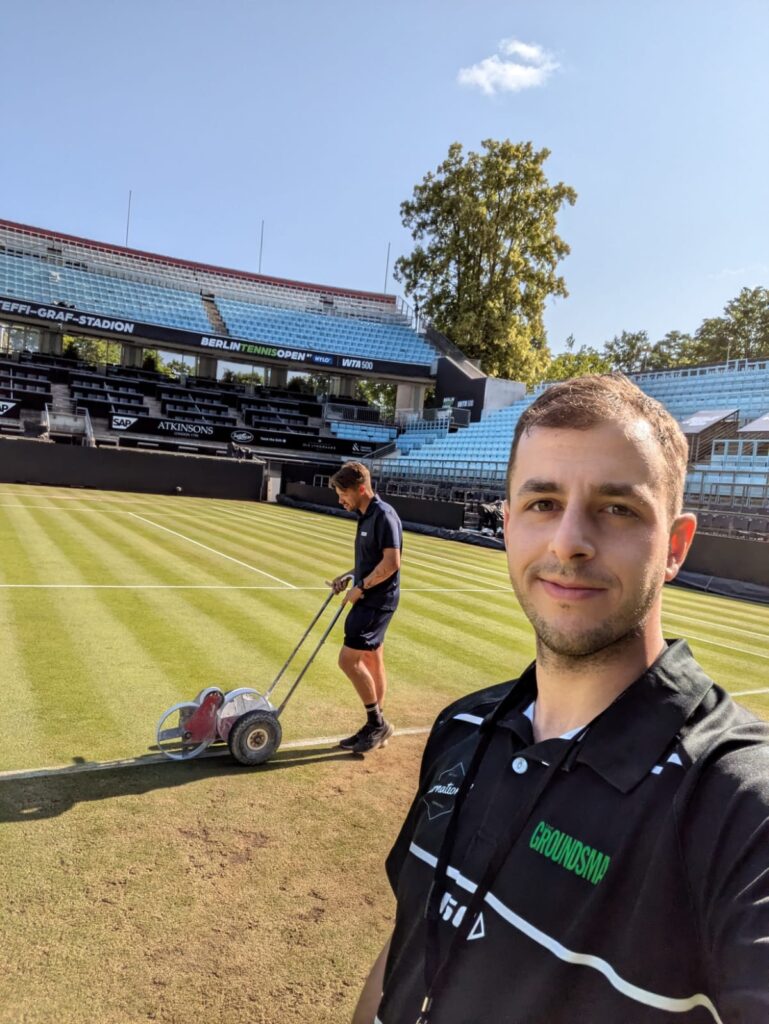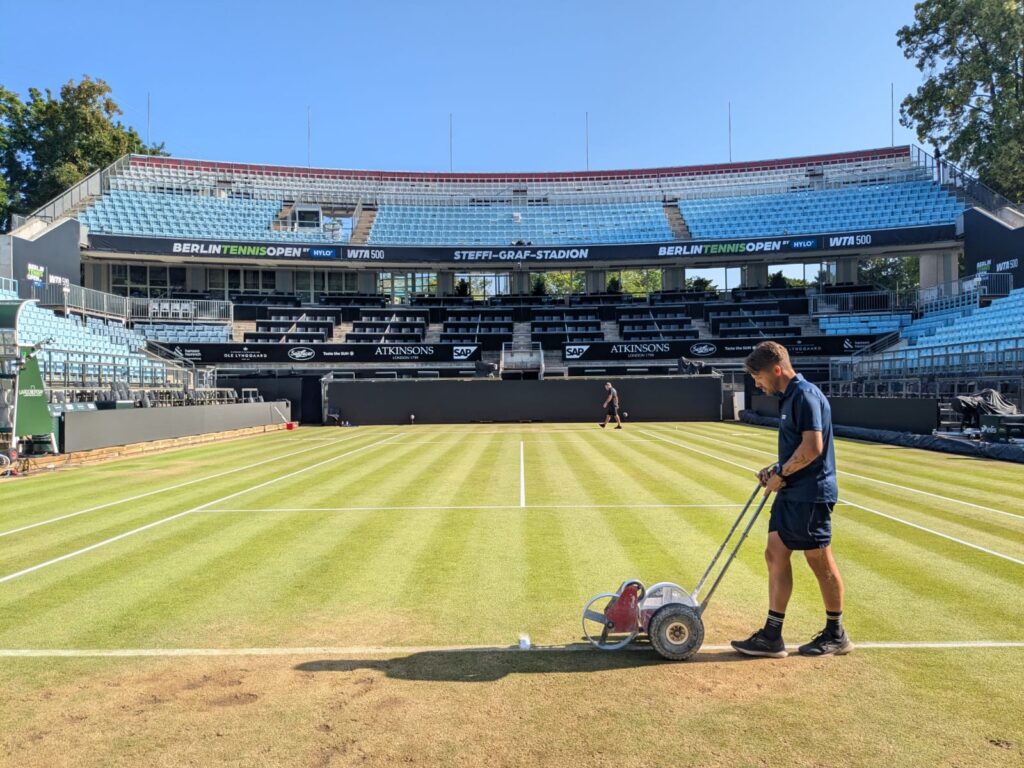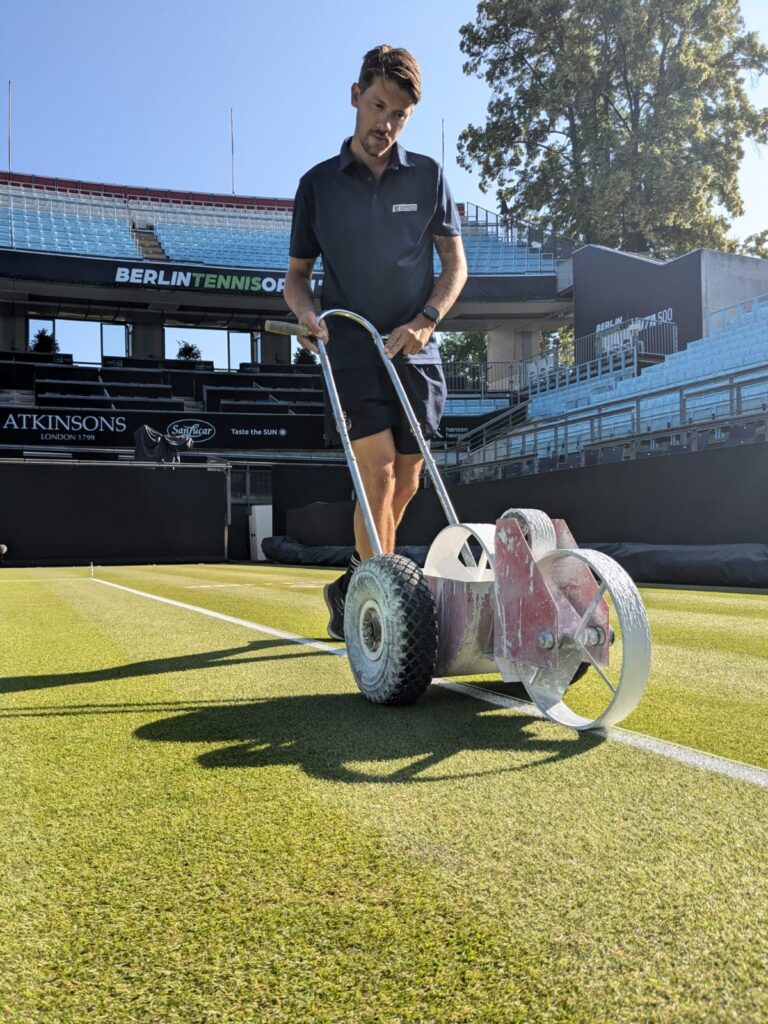Brad of IGFH recently spent time supporting the court preparation at the Hylo Berlin Open Tennis Tournament. This wasn’t his first tournament experience, having previously worked on events like the DP World Tour in Belgium this year alone. Brad’s time in Berlin offered insights into how these tournaments operate and how you can get involved yourself.

Finding opportunities like this often comes down to who you know. Brad got this chance thanks to connections with Alex Earl, who has previously worked at Wimbledon and is now based in Germany. Engelmann Turf manages the courts at this event, and Brad worked alongside Christian Engelmann and his team throughout the tournament. These kinds of roles are rarely advertised, so if you want a way in, your best bet is to speak with people already in the industry.
Regardless of which tournament you’re working, your role will likely follow a similar pattern of early mornings and methodical routines, with the reward of watching world-class sport unfold on the surfaces you prepared just hours earlier. In Berlin, Brad’s day typically started before 6am, mowing and marking the courts at the stadium and practice grounds. Between the morning and evening sessions, he had time to relax, be a tourist in the city, and catch some of the matches.

The methods involved in preparing the courts varied between locations. The main courts at the stadium were prepared each morning with cylinder mowers, involving careful line marking and detailed cleaning of the baselines to keep debris from spoiling surface performance. Simple tasks like leaf blowing take on extra importance at this level, especially when there’s a chance of rain. During Brad’s Berlin experience, it had been raining on and off throughout the week, so the tournament team had to adapt when necessary and the courts were covered every night.
In the evening, the team focused on the practice courts down at the Olympia complex. Here, they used triplex mowers in place of the hand mowers, and handled marking duties before Engelmann’s cover crew put the covers and nets back on. The evening work was typically more relaxed, especially as the tournament moved closer to the finals and demand on the practice courts reduced.

Having the right contacts can open the door to events like Berlin, but it’s also important to be flexible with your schedule. Tournament work often clashes with peak months in the UK, so you’ll probably need to negotiate time off with your employer early on.
Something else to keep in mind is that not all these roles are paid, though many cover accommodation and meals, as well as providing uniforms. Some clubs will even offer extras like vouchers or merchandise. If you’re specifically looking for paid roles abroad, you’ll need to account for extra considerations like visas and tax. Voluntary opportunities often carry less red tape, so they serve as a good introduction to working internationally.
Brad felt welcomed by the Engelmann Turf team and would happily return next year. Beyond offering experience, tournaments like these can be a fantastic opportunity to build your industry network and develop practical skills under pressure.
Check out the video below to see Brad’s full experience.
